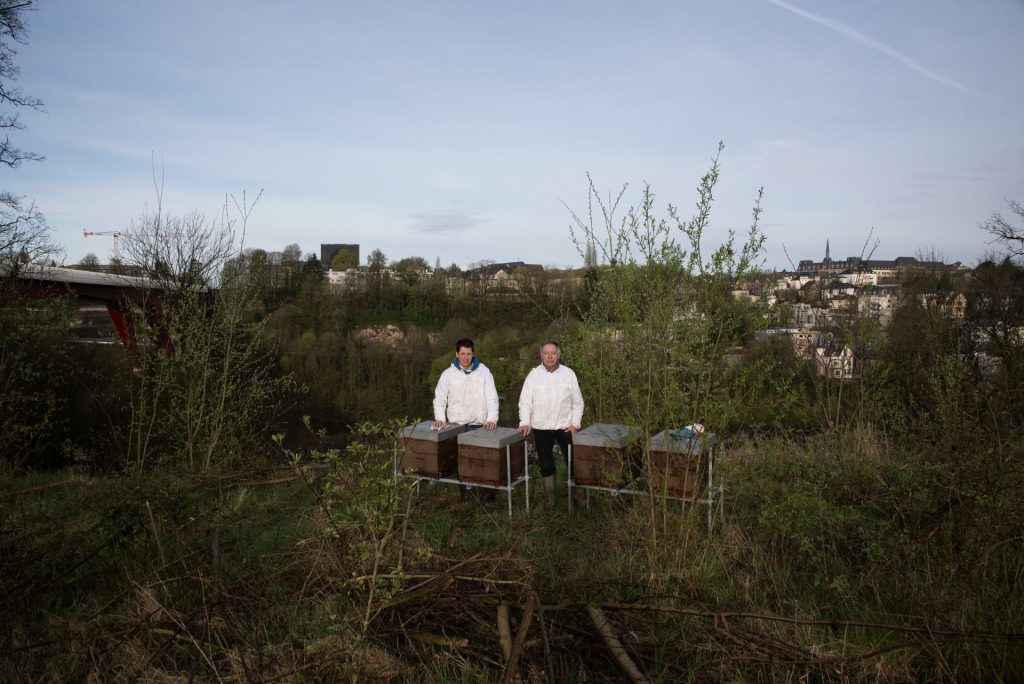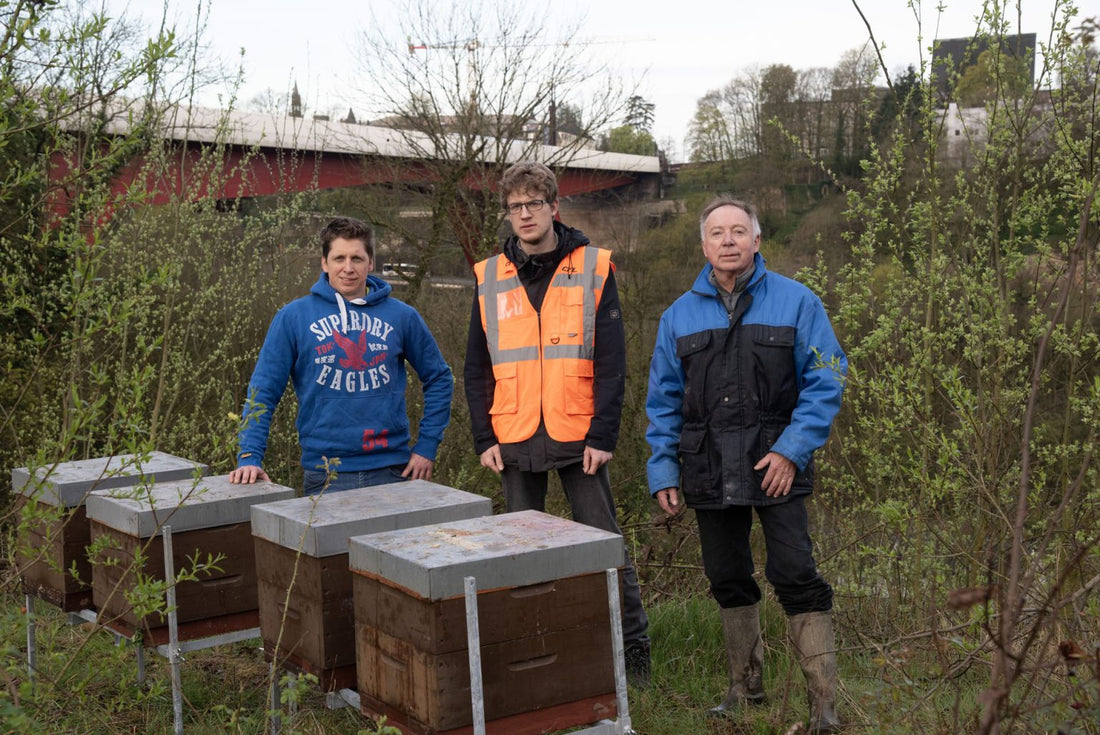
CFL x Honapi, an organic honey from Luxembourg City.
Share
NEAR THE CFL FUNICULAR LOCATED IN LUXEMBOURG-CITY, BEES HAVE A BREEDING GROUND FOR THEIR HONEY
The CFL are committed to protecting biodiversity by hosting beehives operated by Honapi. Established on a plot of land alongside the funicular, these habitats play an active role in preserving a species that is essential to our living environment and in promoting the local bio-honey production.
The honey is lightly filtered when extracted and filled into the jars by the beekeeper - Honapi - in Luxembourg City.
In collaboration with the ANF (Administration de la nature et des forêts) and the forestry administration of the City of Luxembourg, the CFL have just welcomed four beehives run by the Honapi family on railway land not far from the funicular railway.
“Thanks to an initial meeting with co-labor, we were given the opportunity to place our first hives in Luxembourg in 2023 and to embark on an organic beekeeping approach”, says Geoffroy Vigneron, who has lived in Luxembourg for around ten years and took over the family beekeeping business with his father, initially on the other side of the border in the French Moselle region.
“We sell our products directly in France, while in Luxembourg we mainly form partnerships with companies,” adds Geoffroy Vigneron. Located in a natural setting right in the middle of the city, the land in question is home to acacia trees. “Bees thrive easily in pesticide-free urban areas such as Luxembourg City. We will also be able to produce a honey on site that is influenced by the neighboring acacias, giving it a translucide color.”
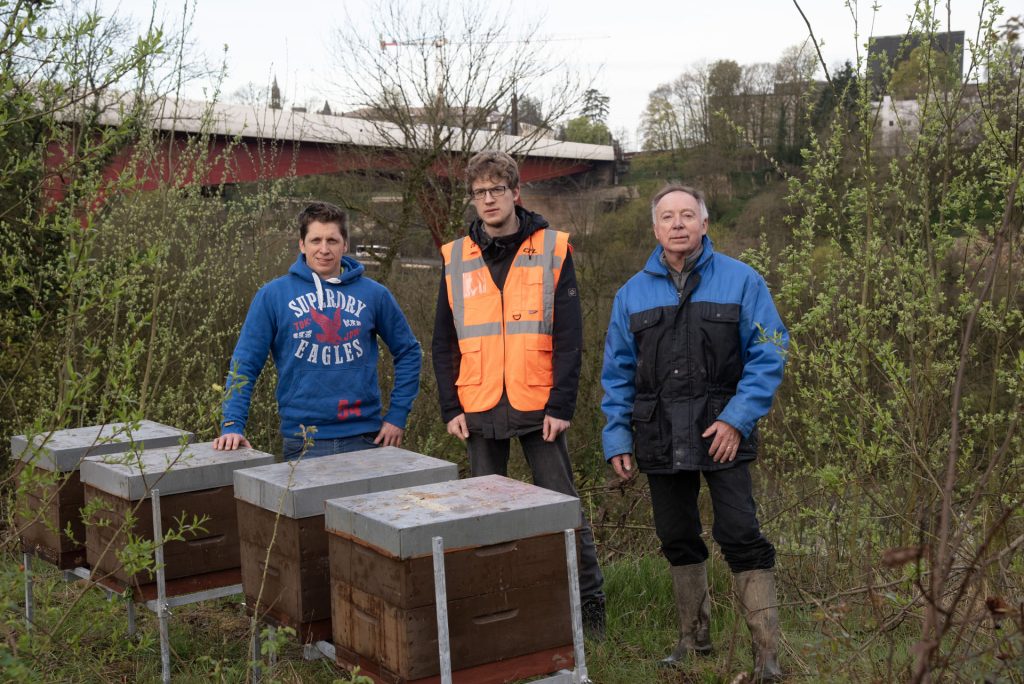
The honey is produced by some 50,000 to 60,000 bees per hive, who perform a series of roles during their short lives (around forty days), resulting in a biennial harvest. “We harvest two batches of honey: a spring honey that is harder and more crystalline in appearance, and a summer honey that is more liquid. All that remains is to deal with the unpredictable frequency of rainfall, which the bees are not so keen on…”
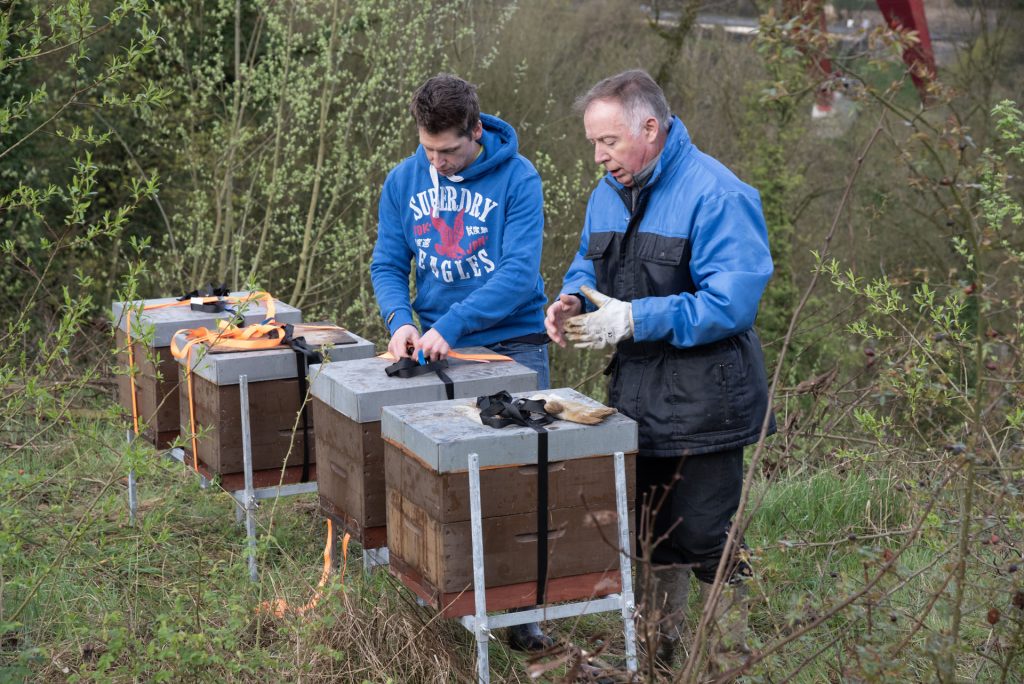
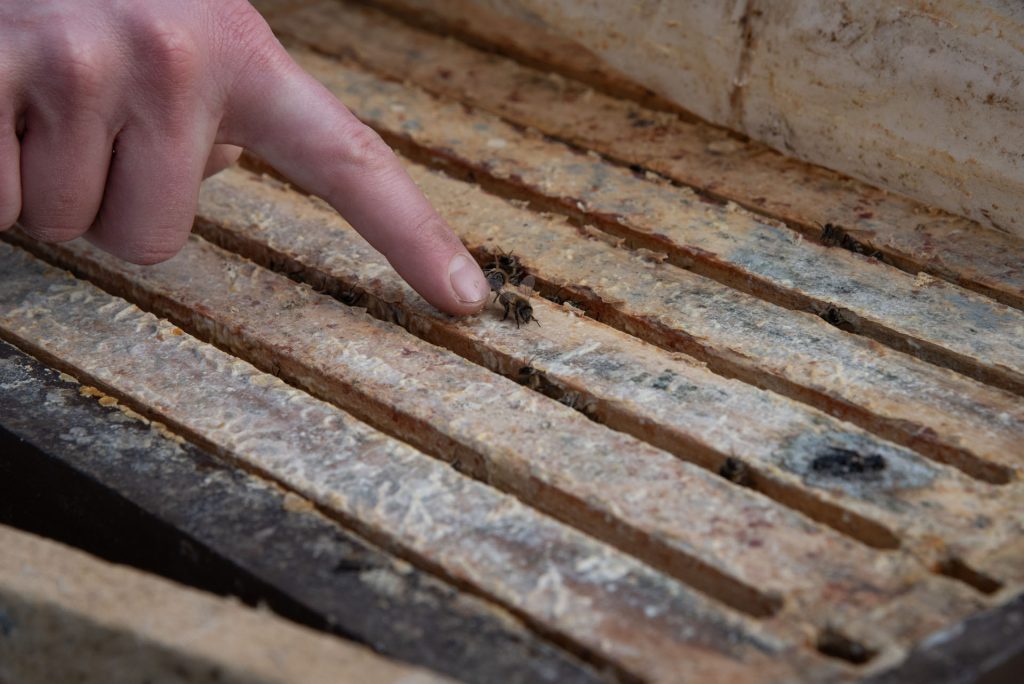
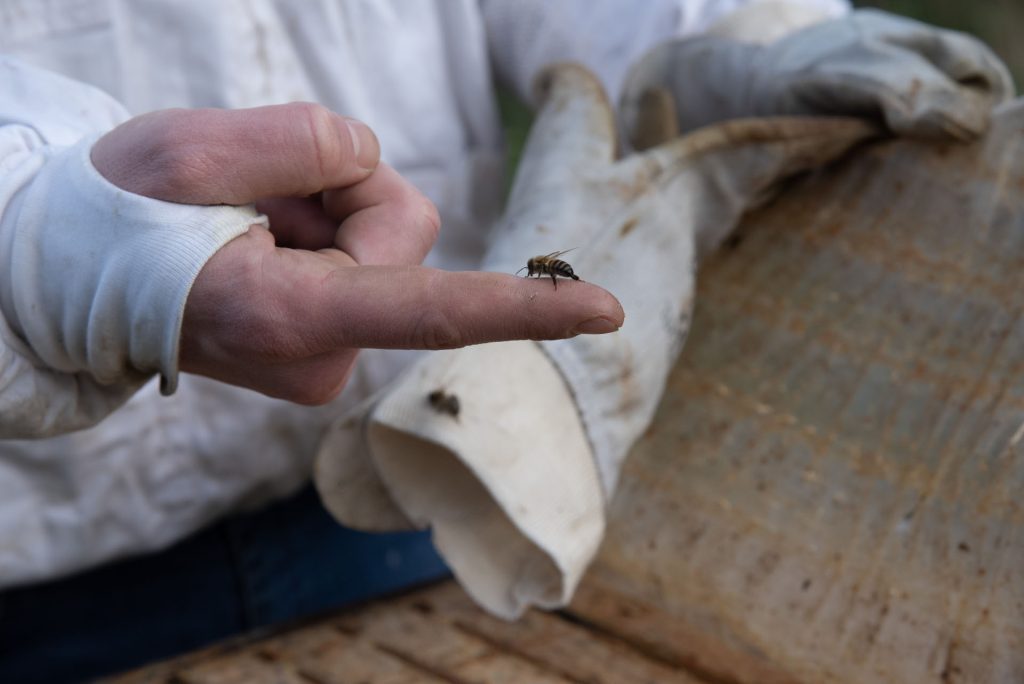
Committed to raising awareness among as many people as possible of the benefits of local, organic production of honey and by-products such as beeswax candles, the beekeeper also works in a short circuit with his hives made by a local craftsman, using bees from a colleague and wax produced via the national federation of beekeepers. “We’re lucky to have a lively and supportive community of beekeepers in Luxembourg. All I need to do now is find a local manufacturer of containers, not necessarily glass ones, to complete the circle.”
Although bees are essential to food security and thus to life on our planet through their pollination activities, which give rise to fruit and vegetables in particular, their population is under threat from climate change, the use of pesticides, the decline in biodiversity and the harmful effects of Varroa mites and the Asian hornet. Hence the importance of taking action on several levels.
A combination of goodwill to harvest good products and positive effects on our environment.
